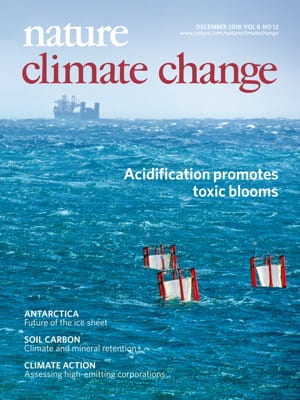
In the December issue of the journal Nature Climate Change, Jonathan Rigg and Lisa Reyes Mason articulate in their commentary article of “Five Dimensions of Climate Science Reductionism”, that science tends to extract climate change from its social and environmental contexts, making climate change a “detached physical process.”
“Pertinent, non-physical evidence is overlooked or underplayed, and the ways in which climate change comes to rest for certain people, in particular places, is neglected,” they write. “The outcome is that the experience of climate change is simplified, to become a disembodied process acting on an undifferentiated world.”
Rigg is a professor in the Department of Geography and director at the Asia Research Center at the National University of Singapore (NUS). From January, he will be joining the School of Geographical Sciences at the University of Bristol in the UK. Rigg is a development geographer interested in understanding the human effects of social, economic and environmental transformations in the Asian region.
Mason, who received her MSW and PhD from Washington University in St. Louis, is assistant professor and PhD program director at the University of Tennessee, Knoxville. Mason is a co-leader of the national Grand Challenges for Social Work initiative to “create responses to a changing environment.”
Rigg and Mason identify five intersecting “reductionisms” in climate science that arise from the marginalization of the social sciences and humanities in climate research and action. “Confronting these reductionisms can lead to a different kind of climate science — one characterized by deep interdisciplinarity, meaningful public engagement and the recognition that global processes have distinct local signatures.”
Rigg and Mason are editors of the forthcoming book People and Climate Change: Vulnerability, Adaptation, and Social Justice, from Oxford University Press.
“Climate challenges are multifaceted and require working with whole systems–with large doses of human social interactions in the mix,” Next Age Institute Director Michael Sherraden said. “‘Social is fundamental’ even for apparently technical problems like climate change.”